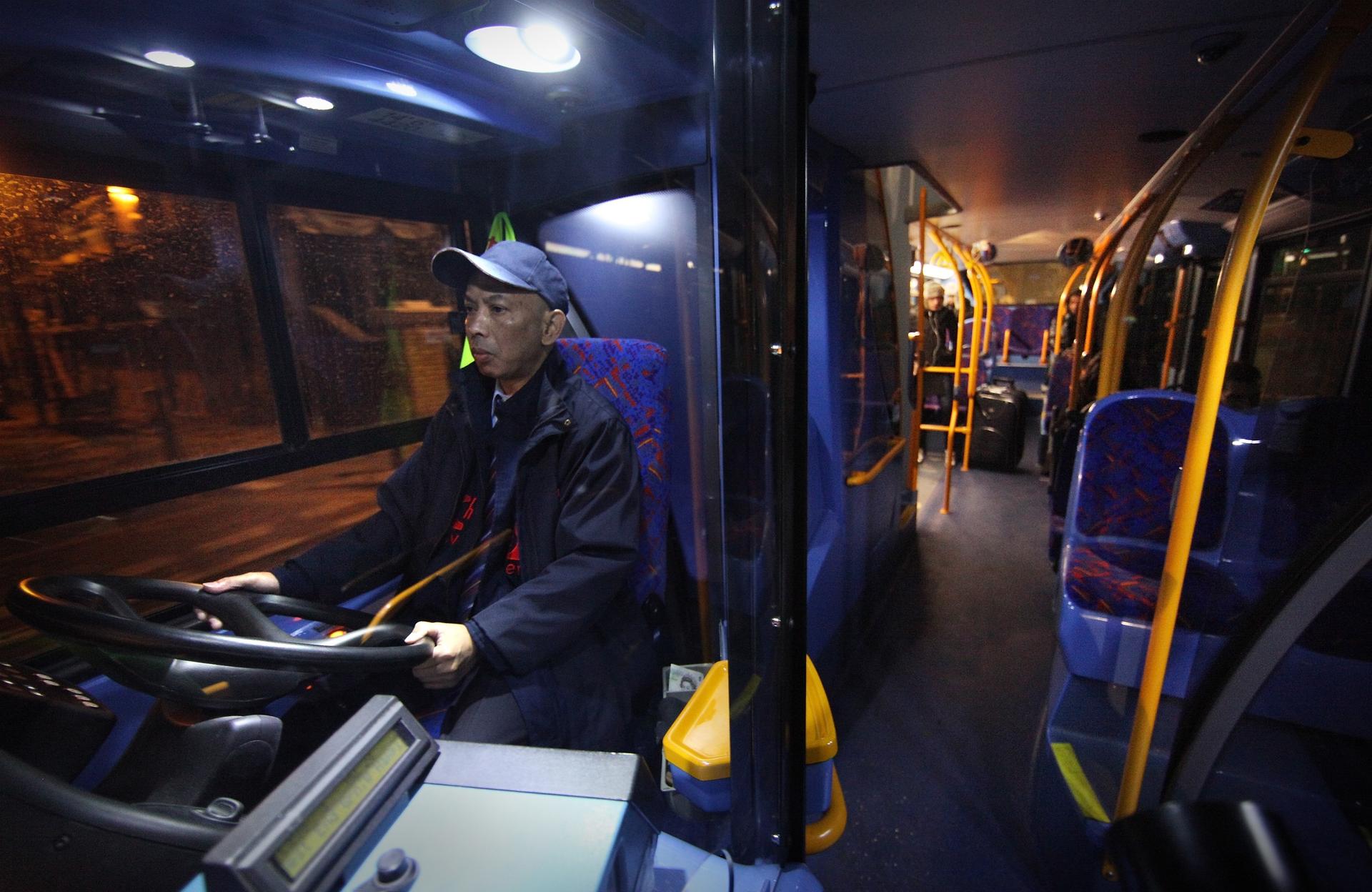Night shift increases health risks
Bus driver Chitpinit Kaewchaluay drives the 762 night bus in London, England, on Dec. 15, 2010. Chitpinit works from midnight until 6am.
Working the graveyard shift should be classified as an occupational health hazard, the editors of journal PLoS Medicine argued in an editorial published today.
Dr. Virginia Barbour, chief editor of PLoS Medicine, noted that research shows that night-shift workers’ bad eating habits and disrupted circadian rhythms increase their risk of developing obesity and type 2 diabetes, the Los Angeles Times reported.
Barbour and her fellow editors cited a study of 69,269 nurses that PLoS Medicine published earlier in December. The study found that workers on rotating night shifts were more likely to develop diabetes over 20 years compared with nurses who worked during the day, Time Magazine reported.
According to Time Magazine:
The longer women worked nights, the higher their risk: those who had rotating night shifts for 1 to 2 years had a 5 percent increased risk of diabetes; working nights on and off for 10 to 19 years upped the risk to 40 percent; and women who pulled graveyard shifts for more than 20 years were 60 percent more likely to develop diabetes than those who never worked at night.
"If the data from this and other studies are to be taken at face value," the editorial authors wrote, according to the LA Times, "shift work has the potential to accelerate the progression of the global epidemic of obesity and diabetes.”
Currently, 15 percent to 20 percent of workers in the United States and Europe work at night, ABC News reported.
Barbour told ABC News, "We would suggest that employers need to take unhealthy eating very seriously, to the extent that they consider that unhealthy foods are essentially environmental hazards and that they should consider what the implications are of exposing their employees to high levels of such hazards in the form of vending machines and fast-food restaurants.”
More from GlobalPost: Two hours or more of TV viewing increases risk of diabetes and heart disease, study says
